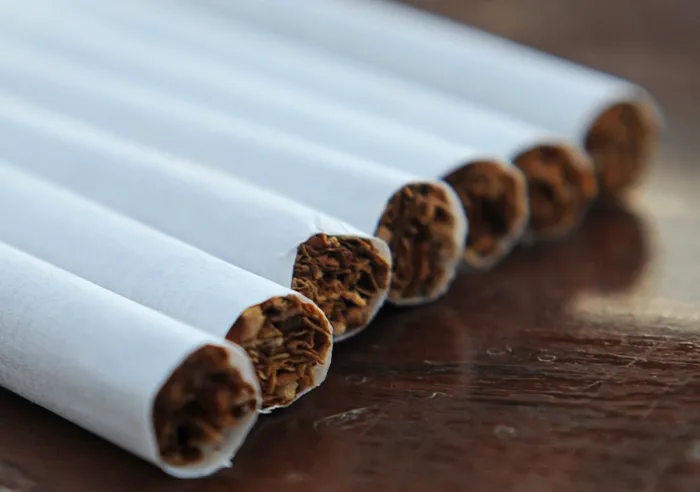Tensions rise in South Africa’s tobacco industry amid allegations of illicit cigarette trade
MANUFACTURING

The Ipsos research released on Tuesday and funded by BATSA named Polaris among companies whose products were being illicitly traded on the South African market.
Image: Courtney Africa/Independent Newspapers
Tawanda Karombo
A trade war is brewing within South Africa’s tobacco cigarette sector after Polaris Manufacturing on Wednesday dismissed findings of an Ipsos research into illicit trade in cigarettes through under-pricing.
Polaris Manufacturing, a cigarette and tobacco products manufacturing firm formerly known as Gold Leaf Tobacco Company, also accused British American Tobacco South Africa (BATSA) of illegal imports.
The Ipsos research released on Tuesday and funded by BATSA named Polaris among companies whose products were being illicitly traded on the South African market.
“The lpsos study determines whether a cigarette is illicit solely on the basis of price, assuming that any pack sold below the Minimum Collectable Tax (MCT) or an arbitrarily BAT-set Lowest Economically Viable Price is automatically illicit. This is not only legally unsound, it is dishonest,” said Raees Saint, a director with Polaris.
Saint added that the tobacco industry in South Africa was battling operational realities such as the existence of counterfeit products, cross-border smuggling and price-averaging.
He explained that these issues affected retail pricing for cigarettes but were “unrelated” to a manufacturer's tax compliance.
Regarding the research, Saint said brands identified as being illicitly traded were only identified through on-pack indicators, with “no verification undertaken to distinguish authentic product from counterfeit goods or smuggled” goods.
Moreover, he added, the report by Ipsos had been compiled without engagement with Polaris.
After the Ipsos report suggested closer surveillance by the South African Revenue Services (Sars) of tobacco companies, Saint said Polaris was among the “first manufacturers in the industry to have continuous, daily on-site surveillance by Sars” officials.
Polaris said that some products were being sold below the mandated threshold was also reflective of a price-sensitive market.
This, said Polaris, had created a fertile ground for criminal syndicates, smuggling operations, and counterfeit producers to exploit the gap between legal prices and what the average consumer can afford.
South African policy makers and industry players now had to consider this situation to come up with “an effective and rational approach … to re-evaluate excise policy” and duties.
“The rest of the African continent, with far lower excise duties, has significantly less incentive for cross-border smuggling, precisely because there is little to gain in unlawful arbitrage,” said Saint.
“Aligning local excise structures with regional norms would neutralize the illicit trade, eliminate price differentials, and enhance compliance across the board, as products would become affordable enough to erode the market for illegal trade.”
The trade wars and counter accusations by South African tobacco companies comes at a time when smoking and tobacco consumption is on the increase across Africa, sharply contrasting other developed regions where trends are pointing to a decline in smoking.
South African tobacco consumers were, however, showing an inclination to adopt smokeless products that industry players tout as less harmless.
Branislav Bibic, Philip Morris International vice president for Sub-Saharan Africa, recently said that tobacco consumers in South Africa “are following global trends as they are embracing new” categories that are smokeless.
“Our experience in South Africa is that once these products are made widely available at an accessible price, and consumers are provided accurate information about their benefits, we see a significant switching from cigarettes to smokeless products,” Bibic said at the Technovation summit in Cape Town on Tuesday.
“Our estimates in South Africa show that already around 20% of the South African legal cigarette market has been replaced by non-smoking products.”
Among the sharp differences between the government of South Africa and the value chain industry for tobacco are issues related to the proliferation and best practices in addressing illicit trade.
BUSINESS REPORT